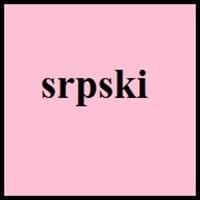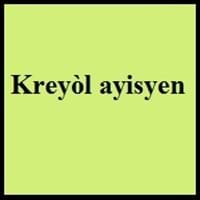Serbian vs Haitian Creole
- Serbian language was derived from the Old Church Salvic, as the language was commonly spoken by most of Slavic people in the 9th Century.
- Serbian language is based on Stokavian dialect.
- In the year 1940, the first technical orthography for Haitian Creole was developed.
- In Haiian Creole, the word 'creole' is of Latin origin via a Portuguese term that means, "person raised in one's house".
Serbian and Haitian Creole Language History
Comparison of Serbian vs Haitian Creole language history gives us differences between origin of Serbian and Haitian Creole language. History of Serbian language states that this language originated in 11th Century whereas history of Haitian Creole language states that this language originated in 17th Century. Family of the language also forms a part of history of that language. More on language families of these languages can be found out on Serbian and Haitian Creole Language History.
Serbian and Haitian Creole Greetings
People around the world use different languages to interact with each other. Even if we cannot communicate fluently in any language, it will always be beneficial to know about some of the common greetings or phrases from that language. This is where Serbian and Haitian Creole greetings helps you to understand basic phrases in Serbian and Haitian Creole language. Serbian word for "Hello" is Здраво (Zdravo) or Haitian Creole word for "Thank You" is Mèsi. Find more of such common Serbian Greetings and Haitian Creole Greetings. These greetings will help you to be more confident when conversing with natives that speak these languages.
Serbian vs Haitian Creole Difficulty
The Serbian vs Haitian Creole difficulty level basically depends on the number of Serbian Alphabets and Haitian Creole Alphabets. Also the number of vowels and consonants in the language plays an important role in deciding the difficulty level of that language. The important points to be considered when we compare Serbian and Haitian Creole are the origin, speaking countries, language family, different greetings, speaking population of these languages. Want to know in Serbian and Haitian Creole, which language is harder to learn? Time required to learn Serbian is 44 weeks while to learn Haitian Creole time required is 24 weeks.





